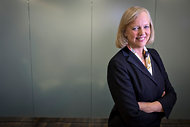 From left: Reuters; Chip Somodevilla/Getty Images; The New York TimesRobert H. Benmosche of A.I.G., left, Marissa Mayer of Yahoo and Jamie Dimon of JPMorgan Chase.
From left: Reuters; Chip Somodevilla/Getty Images; The New York TimesRobert H. Benmosche of A.I.G., left, Marissa Mayer of Yahoo and Jamie Dimon of JPMorgan Chase.
Gentlemen, ladies, please take your seats.
It is time for DealBook’s annual “Closing Dinner,” where we toast — and more important, roast — the deal makers of 2012 (and some of the still-hammering-out-the-fiscal-cliff-deal makers).
This year’s dinner is in Washington so that some of esteemed attendees can run back for negotiations.
We have a number of Wall Street deal makers at the front table: Jamie Dimon, Lloyd C. Blankfein and Warren E. Buffett. They may have an easier time negotiating than some of our elected officials because, as Mr. Buffett likes to say, “My idea of a group decision is to look in the mirror.”
DealBook Column
View all posts
Across the way is Steven A. Cohen of SAC Capital. We sat him next to Preet Bharara, the United States attorney for the Southern District of New York, so they could get to know each other a little better. Steve, a little advice: don’t let Preet borrow your cellphone.
Greg Smith, the former Goldman Sachs banker who wrote a tell-all called “Why I Left Goldman Sachs,” is here. Mr. Smith managed to wangle a reported $1.5 million payday from his publisher, but his book sold poorly and his publisher was left with a huge loss. Nice to see you learned something from your years in banking, Greg.
Timothy F. Geithner and Ben S. Bernanke are sitting at the dais this year, as is Mario Draghi. Strangely, they are playing Monopoly under the table with real dollar bills. (I heard Mr. Bernanke tell Mr. Draghi, “We can always print more.”)
The board of Hewlett-Packard is at the table at the back. Senator Harry Reid and Senator Mitch McConnell, whatever you do, don’t ask Meg Whitman for pointers on how to make the numbers work.
 Olivier Hoslet/European Pressphoto AgencyMario Draghi, the European Central Bank president, helped save the euro.
Olivier Hoslet/European Pressphoto AgencyMario Draghi, the European Central Bank president, helped save the euro.
We’re pleased that Speaker John Boehner also decided to join us this year. We had asked him to invite some other senior members of his caucus, but as you can see from the empty seats at his table, none of them were willing to join him. So we’ve stuck him next to Vikram Pandit.
Mitt Romney just arrived and is sitting at the table sponsored by the Private Equity Growth Capital Council. He is with some of his supporters, among them Leon Cooperman of Omega Advisors and the Koch Brothers. And yes, Mitt, there is a hidden video camera in the floral arrangement in front of you.
Finally, a quick thank you to the folks from Barclays and UBS. Their teams who got caught up in the Libor scandal agreed to pay for tonight’s dinner. Apparently, there is some dispute with the caterer, however, because the bankers are trying to set the rate. (Rimshot.)
And now, before the humor runs out (if it hasn’t already), onto the official toasts and roasts of 2012:
 Peter DaSilva for The New York TimesMeg Whitman, the chief of Hewlett-Packard, has overseen a bad financial year at the company.
Peter DaSilva for The New York TimesMeg Whitman, the chief of Hewlett-Packard, has overseen a bad financial year at the company.
TURNAROUND OF THE YEAR Robert H. Benmosche, A.I.G.’s chief executive, take a bow. The bailout of your company at the height of the financial crisis will probably never be popular, but it will be profitable. (And it should be a bit more popular, too.)
The Treasury Department sold its last shares in the company in 2012, racking up a profit of $22.7 billion for taxpayers. Mr. Benmosche, a tough-talking executive who at one point early in his tenure at A.I.G. threatened to quit because of efforts by the government to meddle in the business, revived a company that had been left for dead. Most of the media, the pundits and the speculators got it wrong. You got it right. We do all owe you a thank you.
LEADERSHIP LESSON: JAMIE DIMON Mr. Dimon, the biggest failure of your career happened in 2012 with the loss of more than $5 billion by a group of your traders, including one known as the “London Whale.” Many C.E.O.’s would have lost their jobs and certainly would not be given a toast.
But you did something most executives would not have done: you admitted to the mistake. In an age when it’s almost de rigueur on Wall Street to hide problems, obfuscate and shade the truth, you told it how it was: “We have egg on our face, and we deserve any criticism we get.”
That’s not to say the situation was handled perfectly; the lack of details about the loss and your continued pushback against regulations raised more questions than answers. But your insistence that “We made a terrible, egregious mistake” is a lesson in leadership for your peers.
CREDIT WHERE CREDIT IS DUE: MARIO DRAGHI Mr. Draghi, the economist and former Goldman Sachs banker turned president of the European Central Bank, nearly single-handedly saved the euro zone in 2012. In a master stroke, he said: “Within our mandate, the E.C.B. is ready to do whatever it takes to preserve the euro.”
That sentence will go down in history for the confidence it inspired in the markets and in countries like Greece, Spain and Italy that were thought to be on the precipice. Through behind-the-scenes shuttle diplomacy with leaders like Angela Merkel of Germany and Mario Monti of Italy, Mr. Draghi was able to convince reluctant politicians that it was in his purview to start buying up bonds if a country needed help — and requested it. So far, his comments alone have served as a remarkable backstop; no country has sought his help.
A BOARD IN NEED OF HELP, AGAIN Bashing the board of Hewlett-Packard is becoming boring. Its members, who have routinely turned over, had another tough year.
The company’s stock fell about 45 percent. H.P. disclosed that its $11.7 billion acquisition of Autonomy, in which it paid an 80 percent premium, had turned out to be a mess (which wasn’t exactly a secret) — or worse, a fraud. But in a strange twist, perhaps trying to remove some of the blame for the disaster of a deal, the board attributed at least $5 billion of the write-down of the deal simply to accounting chicanery.
Some have questioned H.P.’s math. Perhaps some of the write-down is the result of accounting problems, but $5 billion? C’mon. Hewlett’s board, however, still has some friends: It has paid an estimated $81 million to Wall Street to help orchestrate some its failed deals in recent years.
SEEKING FACEBOOK ‘FRIENDS’ Mark Zuckerberg, Facebook’s C.E.O., has been attending our “Closing Dinner” for years. (He wore Adidas flip-flops to his first.) Back then, he was the “It” boy — the one everyone in the room wanted to “friend.” This year, after Facebook pursued its I.P.O., some investors want to “unfriend” him.
As everyone knows, the market has not been kind to Facebook shares, which were sold at $38 a share and at one point this year dropped by half. The good news is that Facebook’s shares have rebounded and are now at about $26 a share; the bad news is that long-term shareholders are still down about 30 percent.
With questions about Facebook’s privacy policies and mobile strategy still at the fore, Mr. Zuckerberg has some work to do. Hopefully, when we reconvene next year, more investors will want to sit at your table. (My apologies for sticking you next to Andrew Mason of Groupon.)
YAHOO FINALLY GETS IT RIGHT For nearly the last five years, if not decade, Yahoo had clearly lost its luster. It went through a series of C.E.O.’s, its best engineers left to work at Google and Facebook, and its stock had tanked.
Enter Daniel S. Loeb, the activist investor. He saw value where others didn’t. He also used some clever powers of persuasion to get on the company’s board: He ousted Scott Thompson, Yahoo’s new chief (remember him?) for lying on his résumé by saying he had a computer science degree when, in truth, he had an accounting degree. That sleuthing, and the ensuing embarrassment for the board, gave Mr. Loeb an opening to get his slate of directors on the board.
But most important, once he got on the board, he did something nobody expected: He hired Marissa Mayer, a true Silicon Valley star from Google, to run the company. The jury is still out on the company’s future, but for the first time in ages, people are talking about the company as if it actually has a future. Kudos.
Article source: http://dealbook.nytimes.com/2012/12/31/hold-your-applause-please-until-after-the-toasts/?partner=rss&emc=rss

